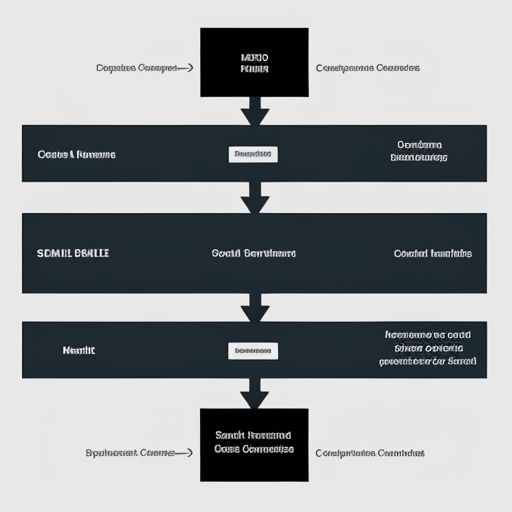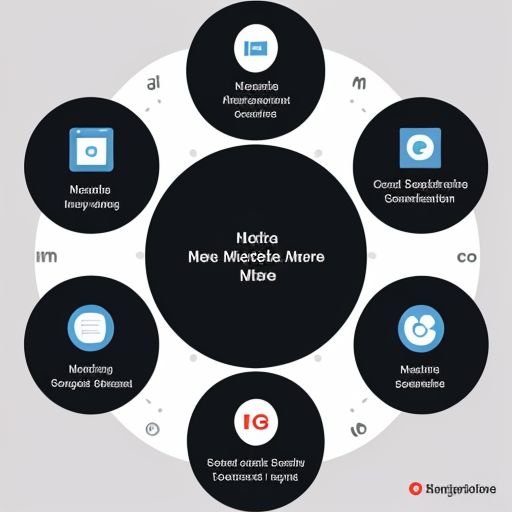In today’s digital landscape, businesses need to provide seamless and engaging experiences across all touchpoints to capture and retain customers. This is where a Digital Experience Platform (DXP) comes in.
Have you ever wondered how brands create consistent, personalized interactions across their websites, mobile apps, and even in-store kiosks? The answer often lies in a powerful DXP working behind the scenes.
This comprehensive guide will delve deep into the world of DXPs, exploring their functionalities, benefits, and how to choose the right one for your business needs.
Understanding the Core of a Digital Experience Platform
A Digital Experience Platform (DXP) is a comprehensive software solution that empowers businesses to create, manage, and optimize consistent and engaging digital experiences across all touchpoints. Think of it as a central hub where you can orchestrate personalized customer journeys across various channels, including:
- Websites
- Mobile Apps
- Portals
- Ecommerce Platforms
- Internet of Things (IoT) devices
Essentially, a DXP allows you to connect every digital interaction a customer has with your brand, ensuring a unified and personalized experience.
Why is a Digital Experience Platform Important?
In an age where customer expectations are higher than ever, a DXP is no longer a luxury but a necessity. Here’s why:
1. Delivering Omnichannel Customer Experiences
Customers interact with brands across multiple channels. A DXP enables you to create a consistent and personalized experience across all touchpoints, ensuring a seamless journey.
2. Boosting Customer Engagement and Loyalty
By personalizing interactions and delivering relevant content, DXPs foster stronger customer relationships, ultimately leading to increased engagement and loyalty.
3. Driving Business Agility and Innovation
DXPs provide a flexible and scalable foundation for businesses to adapt to evolving customer needs and market trends. They empower organizations to experiment with new technologies and deliver innovative digital experiences.
exchange.tailieupentech.com/wp-content/uploads/2024/07/digital experience platform-668640.jpg" alt="Digital Experience Platform" width="512" height="512">Digital Experience Platform
Key Components of a Digital Experience Platform
While specific features may vary, most DXPs include the following core components:
1. Content Management System (CMS)
A robust CMS lies at the heart of a DXP, enabling you to create, manage, and deliver content across multiple channels.
2. Customer Relationship Management (CRM)
DXPs often integrate with CRM systems to provide a 360-degree view of customer interactions, enabling personalized experiences.
3. Analytics and Personalization Engines
Powerful analytics capabilities provide insights into customer behavior, allowing businesses to personalize content and optimize digital experiences.
4. Marketing Automation Tools
DXPs streamline marketing efforts by automating tasks like email marketing, lead nurturing, and campaign management.
How to Choose the Right DXP for Your Business
Selecting the right DXP is crucial for success. Consider these factors:
- Business Requirements: Identify your specific needs and goals.
- Integration Capabilities: Ensure the DXP integrates seamlessly with your existing technology stack.
- Scalability and Flexibility: Choose a DXP that can grow with your business and adapt to future needs.
- Vendor Expertise and Support: Opt for a reputable vendor with a proven track record and reliable support.
The Future of Digital Experiences
DXPs are constantly evolving to meet the ever-changing demands of the digital landscape. We can expect to see advancements in areas like:
- Artificial Intelligence (AI): AI-powered DXPs will deliver hyper-personalized experiences and automate complex tasks.
- Voice and Conversational Interfaces: DXPs will increasingly integrate with voice assistants and chatbots to create seamless conversational experiences.
Conclusion: Embracing the Power of DXPs
In today’s digital-first world, delivering exceptional customer experiences is paramount. DXPs empower businesses to create consistent, personalized, and engaging interactions across all touchpoints, driving customer loyalty and business growth.
By understanding the capabilities of DXPs and carefully considering your specific requirements, you can choose the right platform to transform your digital presence and thrive in the ever-evolving digital landscape.
What are your thoughts on the role of DXPs in shaping the future of customer experiences? Share your insights in the comments below!







